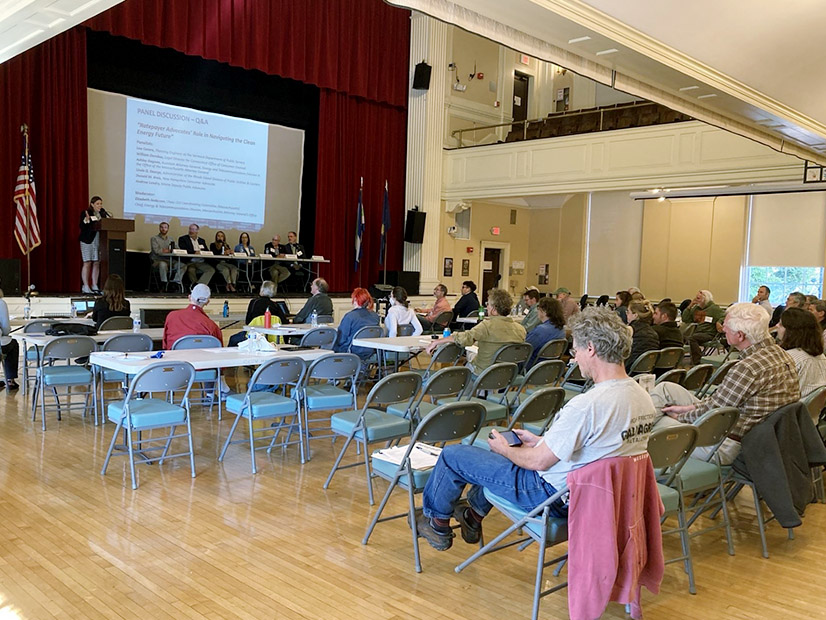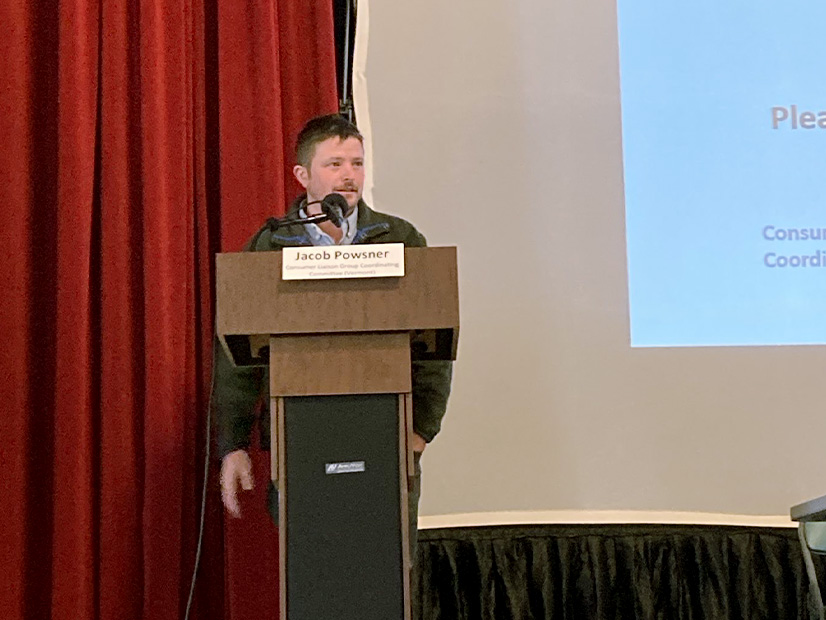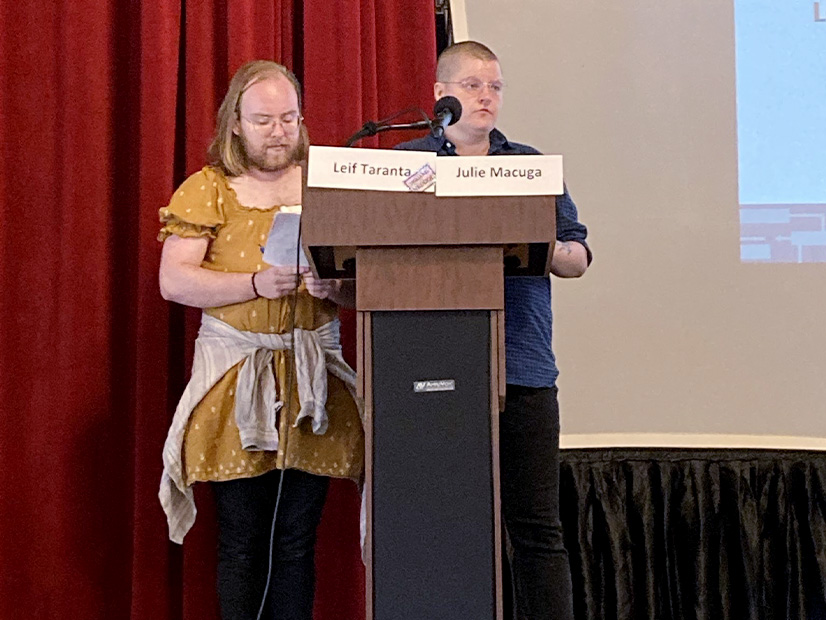Consumer advocate representatives from all six New England states convened to discuss their role in the transition off fossil fuels.
BURLINGTON, Vt. — ISO-NE, states and stakeholders must work together to prevent transmission costs from skyrocketing amid the energy transition, consumer advocates told the ISO-NE Consumer Liaison Group (CLG) last week.
Consumer advocates from all six New England states convened at the CLG fall meeting Thursday to discuss their role in the transition off fossil fuels.
The advocates stressed the importance of keeping energy affordable for consumers, while highlighting the dual climate and cost benefits of limiting the peak demand on the grid as electrification of transportation and heating increases.
“We’re trying to broaden the definition of what a consumer interest is,” said Bill Dornbos, legal director for Connecticut’s Office of Consumer Counsel, making the case that consumer needs include both low rates and a healthy climate and environment.
Dornbos added that it is time to “rebalance the power dynamic between ratepayers and utilities” to spur innovation and adapt to the climate crisis.
Andrew Landry, Maine’s deputy public advocate, agreed on the importance of keeping electric rates low in the clean energy transition.
“I believe, and our office believes, that we can achieve our climate policy goals in a way that is affordable,” Landry said.
ISO-NE has projected a 2050 winter peak of up to 57 GW due to the electrification of heating and transportation as part of its 2050 Transmission Study. (See ISO-NE Planners Outline Potential Solutions for 2050 Tx Overloads.) Landry said more planning and focus is needed to limit the growth of the peak, including increased investment in demand response programs, energy efficiency and storage.
“I think we have underinvested in efficiency and demand response,” Landry said, noting that ISO-NE indicated in the initial transmission study findings that a 10% reduction in the 2050 winter peak would be associated with a one-half to one-third reduction in transmission costs. (See ISO-NE Projects Decrease in Gas, Increase in Coal and Oil for 2032.) Landry added the region should “do everything we can to lower that peak.”
Landry said ISO-NE has a key role in keeping transmission costs low as demand from electrification increases.
“I think market rules can be designed to support demand response and support energy storage,” Landry said, adding that “we also need to think about demand response and storage in the transmission planning process,” along with non-transmission alternatives.
Don Kreis, New Hampshire’s consumer advocate, agreed on the need to keep peak loads low and prevent runaway transmission costs.
“I am absolutely rabid about energy efficiency,” Kreis said, adding that there is an overlap in climate and ratepayer interests. Kreis also called for more scrutiny on asset condition projects, which represent the largest source of new transmission investments in the region. Asset condition projects are transmission upgrades for infrastructure that is old, obsolete or in need of wide-scale repair.
This month, Kreis co-signed a letter with representatives from Connecticut, Maine, Massachusetts and Rhode Island calling for a pause on all nonemergency asset condition projects not yet under construction until the asset condition approval process is reformed. The current process requires relatively minimal scrutiny for the multimillion-dollar projects, the costs for which are spread among ratepayers across New England. (See States Press New England TOs on Asset Condition Projects.)
The consumer advocates wrote there is about $5 billion in proposed, planned or under-construction asset condition projects and that this cost has increased by approximately 50% in the past six months.
“All stakeholders … need the opportunity to assess the reasonableness of each [transmission owner’s] planned spending,” the consumer advocates wrote. “Ultimately, the NETOs must be held accountable for the prudency of this spending.”
Community Members Call for Clean Energy, Transparency
Several local climate and environmental justice advocates who spoke at the meeting called on ISO-NE to take bolder steps to spur the transition away from fossil fuels.
Julie Macuga, a researcher for Global Energy Monitor, said it’s difficult for states to implement decarbonization policies when ISO-NE policies like the Minimum Offer Price Rule and forward capacity auctions ensure ratepayer dollars go directly to fossil fuels.
“ISO New England has the power to support actual grid reliability in the face of climate change,” Macuga said, adding that “you can end coal, gas, biomass and more.”
Jacob Powsner, a member of the CLG Coordinating Committee, climate activist and maple farmer, told RTO Insider he would like to see more transparency and democratic engagement from ISO-NE, as well as a larger voice for ratepayers at NEPOOL.
“If a member of the public wants to join [NEPOOL], it costs $500,” said Powsner, who added that even as an active member of the CLG Coordinating Committee, he still personally would have to bear the costs of NEPOOL membership.
“That would just come out of the farm budget,” Powsner said.
Leif Taranta, a Burlington-based community organizer, emphasized the impacts of climate-fueled flooding that hit Vermont this summer, displacing hundreds of residents.
“What is reliable energy when business as usual means that folks don’t even have a light switch?” Taranta asked.
Taranta called for increased focus on community resilience solutions and said there is “widespread desire” for programs including community solar, net metering and demand response.
“We can change our ways to take care of each other, and that should be the first priority,” Taranta said.






